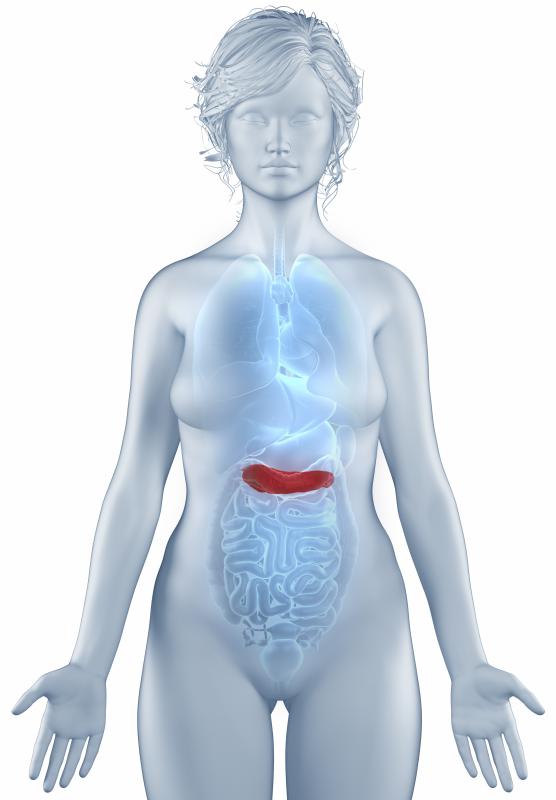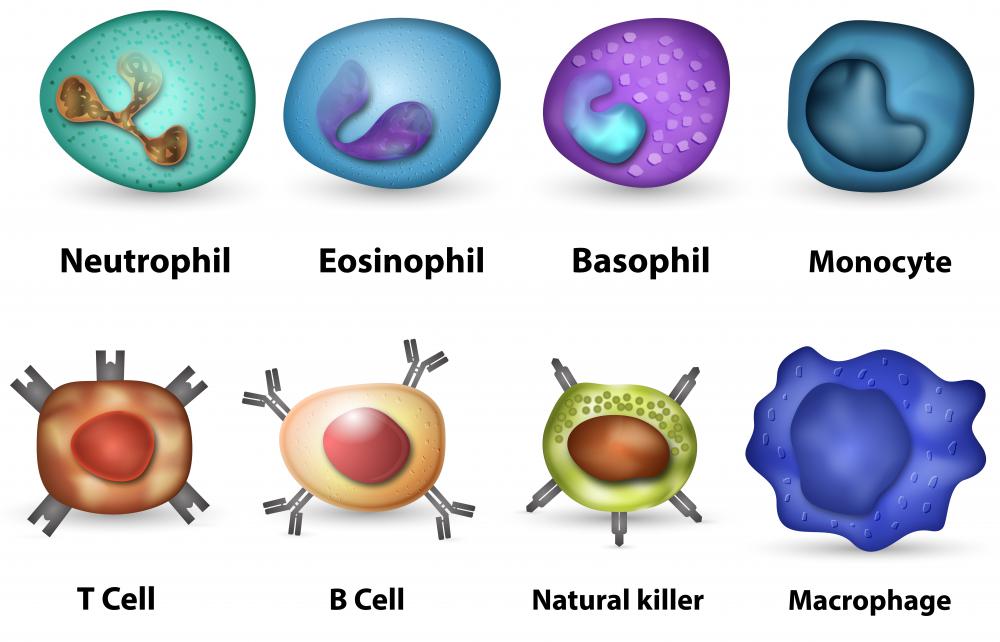At WiseGEEK, we're committed to delivering accurate, trustworthy information. Our expert-authored content is rigorously fact-checked and sourced from credible authorities. Discover how we uphold the highest standards in providing you with reliable knowledge.
What is an Immune Complex?
Immune complex, also known as antigen-antibody complex, occurs from the bonding of an antibody to an antigen. An antigen is any substance that is capable of causing the body to produce an antibody. Examples include toxins, microorganisms, and proteins that are foreign to the body. An antibody is a specific immune protein that is produced in the body because of the antigen. Immune complex molecules help in fighting diseases, but sometimes individuals form autoantibodies that attack the person’s own tissues and cause autoimmune diseases.
The bonding of the antigen and antibody is an important part of a healthy immune system. For example, if a person is exposed to a disease-causing organism, the white blood cells, also known as B cells, will cause the production of an antibody. The new molecule composed from the bonding of an antigen and an antibody is an immune complex. Usually, macrophages in the spleen and Kupffer cells in the liver remove these molecules. Macrophages, a term composed from the Greek words for big and eaters, are white blood cells that reside within tissue.

Phagocytes, or macrophages, consume and digest immune complex molecules. This is important in providing both innate and adaptive immunity. One macrophage can eat more than 100 bacteria before dying. If the immune complex clusters are not removed by macrophages or Kupffer cells, they then continue circulating. Eventually, they become trapped in human tissue and can cause autoimmune disorders, infections, and malignancies.

Many different diseases can occur when immune complex molecules build up in the bloodstream or tissues. Some that are well-known include Type I diabetes, Crohn’s disease, psoriasis, malaria, and viral hepatitis. In Type I diabetes, the antigen-antibody complex causes an autoimmune destruction of insulin-producing beta cells in the pancreas. When the molecules cause an autoimmune disease that inflames the intestines, it is known as Crohn’s disease.

Guillain-Barré syndrome, Addison's disease, and Sjogren’s syndrome are also autoimmune diseases that are less well-known. Altogether, there are more than 80 autoimmune diseases. Some researchers believe that chronic fatigue and fibromyalgia may be diseases caused by immune complex molecules that were not effectively removed from the body.
In a paradoxical fashion, immune complex molecules can either aid the body in the functioning of a healthy immune system or can cause harm. An antibody bonding with an antigen can be extremely helpful in fighting off illnesses or removing toxins from the body. A healthy immune system depends on these molecules forming. If, however, these molecules are not filtered from the body by macrophages or Kupffer cells, many varied diseases can occur.
AS FEATURED ON:
AS FEATURED ON:


















Discussion Comments
@burcidi-- Yea, but don't forget-- if the immune system is working correctly, there is no reason for immune complex clusters to remain in the body and infect tissues. This is why your body is attacking your thyroid, because the clusters must have gotten trapped in your thyroid tissue and the immune system is still trying to get rid of them.
If you have not had detailed analysis to determine why your macrophages or Kuppfer cells are not eliminating immune complexes as they should, I recommend that you do.
You also need to build your immune system up, so that when antigens enter your body in the future, the same thing doesn't happen again.
I have Hashimoto's, which is a type of autoimmune disease where the body attacks the thyroid gland. When I ask doctors about this disease, they always describe it to me as if it's something that my body developed completely on its own. But from what I understand about immunity complex clusters, they can't form unless some kind of a bacteria enters the blood in the first place.
So my Hashimoto's was actually caused by an infection. My body didn't start attacking my thyroid tissues at whim.
What happens in blood type incompatibility is that the mother can develop antibodies to the child because the child is of a different blood type. If that were to happen, the body can attack and kill the infant inside the womb because it thinks that it's a foreign object.
So my mom regularly had to give blood samples throughout her pregnancy. If the doctors had found immune complexes in the blood, they would have prepared for an emergency birth.
Post your comments